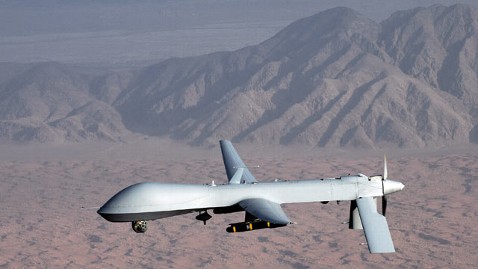The National Transportation Safety Board will publicly question at a news conference planned for Thursday morning in Washington whether the Federal Aviation Administration and Boeing adequately tested the lithium batteries that have caught fire on Dreamliners in the U.S. and Japan, ABC News has learned exclusively from a government source.
The NTSB will say its investigation into the fire on the 787 at Boston's Logan Field showed gaps between what happened with the battery in testing and what happened with the battery confiscated by the NTSB in Boston, a source told ABC News.
The NTSB investigation followed the mid-January announcement that the FAA ordered the grounding of all Boeing 787 Dreamliner jets until their U.S. operator proved that batteries on the planes are safe.
The pre-certification test results were found to be different than what happened during NTSB investigation, the source said. The agency, charged with investigating civil aviation accidents in the U.S., is expected to question whether the Boeing tests certified by the FAA were "robust enough."
The NTSB told ABC News that its investigation is looking at the battery failure and what caused it, as well as the certification processes, emphasizing that the FAA has been "very cooperative in allowing our investigators access to the certification review that they are undertaking on their own."
Akio Kon/Bloomberg/Getty Images
787 Dreamliner Grounded, Passengers Forced to Evacuate Watch Video
Boeing 787 Dreamliner Deemed Safe Despite Mishaps Watch Video
Both the airplane maker and the FAA are responsible for the testing, the government source said.
This morning, the chairwoman of the NTSB, Deborah Hersman, told reporters at a breakfast briefing that the initial investigation into the batteries found "multiple cells where we saw uncontrolled chemical chain reaction," including short circuiting and thermal runaway, "and those features are not what we would have expected to see in a brand new battery, in a brand new airplane.
"We're evaluating assessments that were made, whether or not those assessments were accurate, whether they were complied with and whether more needs to be done," Hersman said. "We want to make sure the design is robust, that the oversight, the manufacturing process, that those are all adequate -- and so that will be a part of our continuing investigation to determine the failure modes, what may have caused it and what can mitigate against that in the future."
The lithium batteries, one power source for the 787, have never before been used in commercial airliners and were a source of concern from the beginning because of they operate at high temperature.
"I would not want to categorically say that these batteries are not safe," Hersman said. "Any new technology, any new design, there are going to be some inherent risks. ... I would say that, in the past, the NTSB have expressed concerns about the risks and recommended mitigation measures."
Hersman added that the fire seen on board the JAL Dreamliner in Boston in "shows us some risks that were not addressed."
In a statement to ABC News, Boeing said: "Lithium ion batteries were selected after a careful review of available alternatives because they best met the performance and design objectives of the 787. We've used them successfully in other applications, such as satellites, for nearly a decade, and they are used on other aircraft, spacecraft and naval vessels.
"With that said," Boeing added, "we constantly challenge our assumptions and decisions across all of our products when new information becomes available. Nothing we learned during the design of the 787 or since has led us to change our fundamental assessment of the technology. It merits emphasis that the 787 has extensive protections in place to ensure the ability for safe flight to continue even in the presence of a battery failure."










